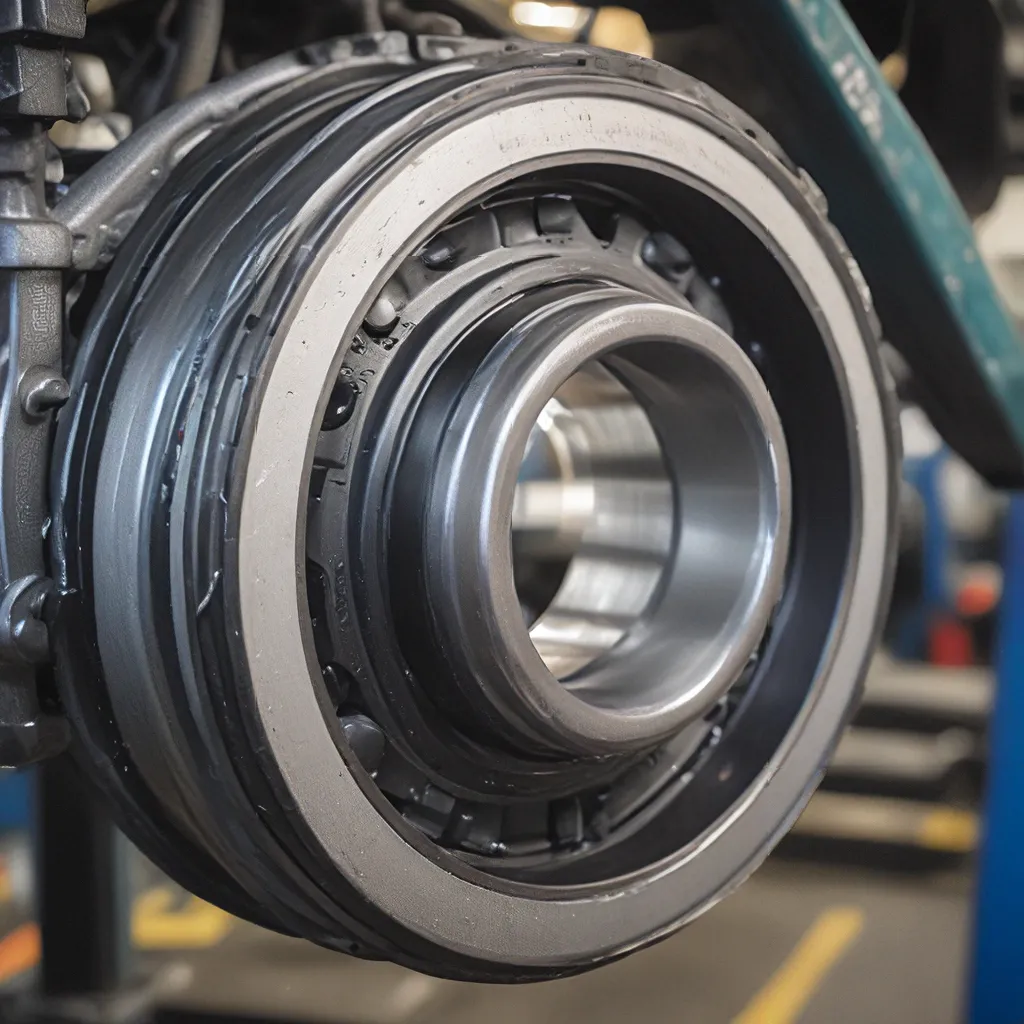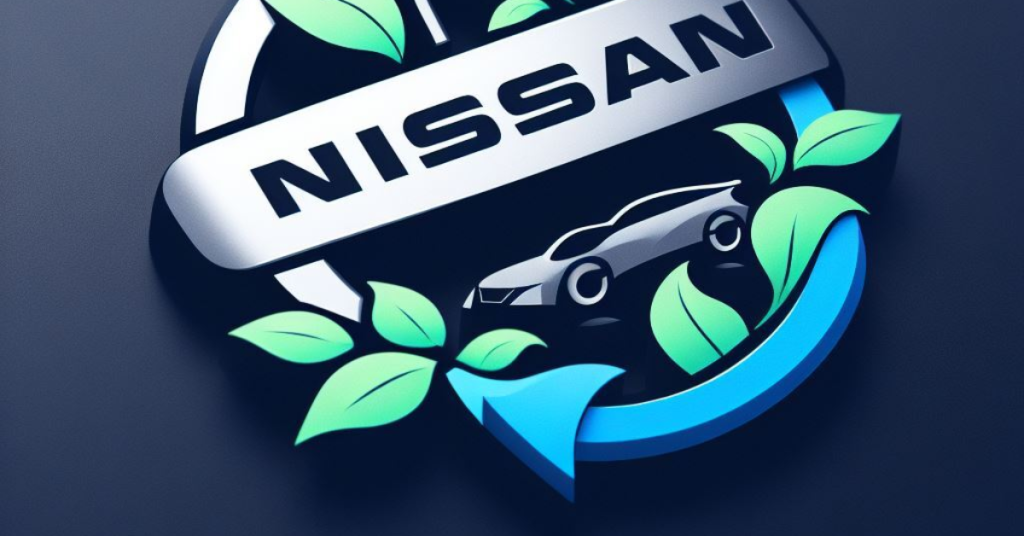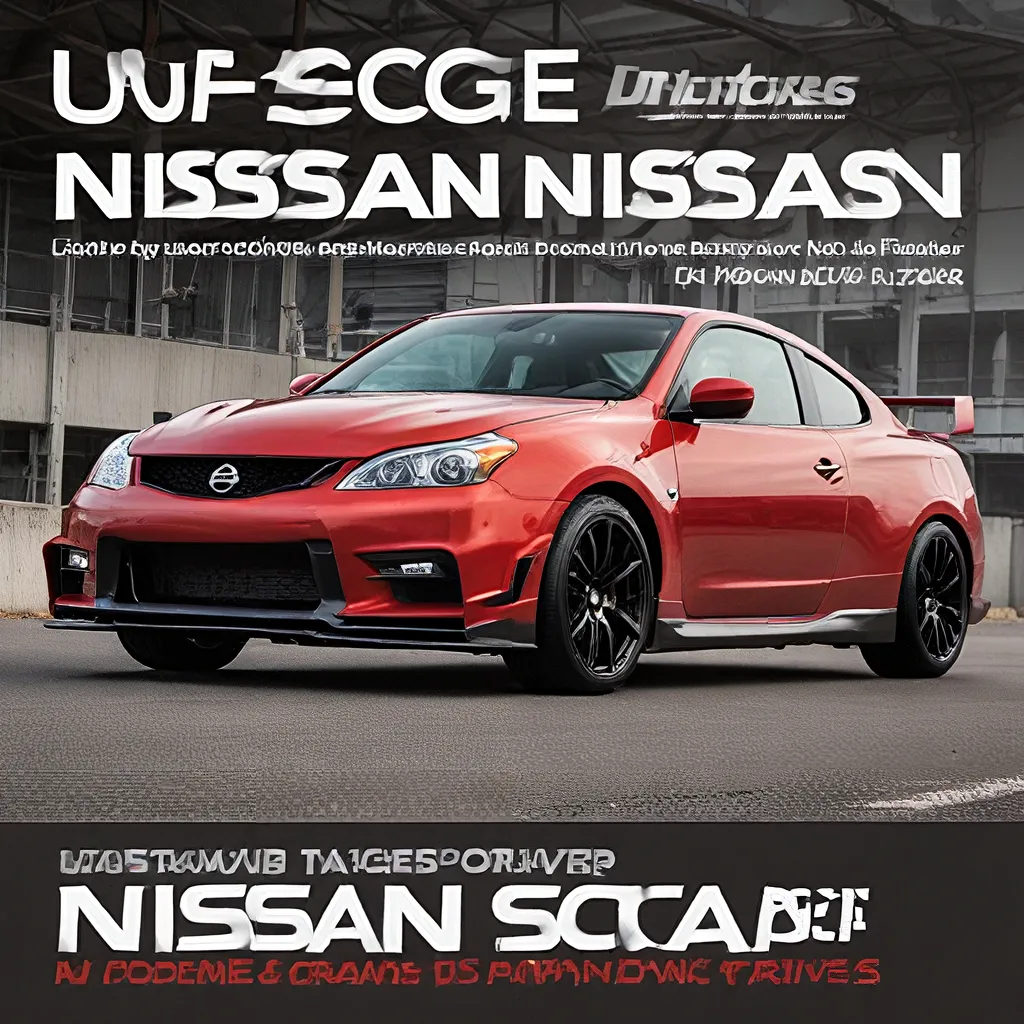
Picture this: You’re cruising down the highway, windows down, music blasting, the open road ahead of you. Suddenly, a horrific grinding noise erupts from under the hood, and your beloved Nissan grinds to a halt. Your heart sinks as you realize it’s a bearing failure – a costly and potentially catastrophic problem.
As an avid Nissan enthusiast, I’ve been there, and I know the pain all too well. But fear not, my fellow gearheads! In this comprehensive guide, I’m going to walk you through the ins and outs of Nissan bearing maintenance, arming you with the knowledge to conquer this common yet dreaded issue and keep your ride running smoothly for years to come.
Understanding the Importance of Bearing Maintenance
Bearings are the unsung heroes of your Nissan’s powertrain, quietly and tirelessly supporting the rotation of critical components like the crankshaft, camshaft, and wheel hubs. When these bearings fail, the consequences can be severe. We’re talking seized engines, blown transmissions, and even dangerous wheel failures – the kind that can leave you stranded on the side of the road or, even worse, put you and your loved ones in harm’s way.
Nissan vehicles are known for their reliability, but that reputation is built on proper maintenance. Neglecting your bearings is akin to ignoring the oil changes or skipping crucial tune-ups. It’s a recipe for disaster, and one that can cost you thousands in repairs.
Common Bearing Failure Culprits
So, what exactly causes Nissan bearing failures? There are a few key culprits to be aware of:
Lack of Lubrication
Proper lubrication is the lifeblood of any bearing. Without it, the metal components rub against each other, generating heat and causing premature wear. This can be the result of neglected oil changes, leaking seals, or simply using the wrong oil for your vehicle.
Excessive Wear and Tear
Even with proper lubrication, bearings will eventually wear out over time and with high mileage. This is especially true for high-performance Nissan models that see regular track time or towing duty.
Contamination
Dirt, debris, and other foreign particles can infiltrate the bearing housing, causing abrasive damage and accelerating the wear process. This is a common issue for off-road enthusiasts or those who frequently drive in harsh conditions.
Improper Installation
Bearing replacement is a delicate task that requires specialized tools and expertise. If a bearing is not installed correctly, it can become misaligned or overstressed, leading to premature failure.
Symptoms of Failing Bearings
Catching bearing issues early can mean the difference between a minor repair and a catastrophic engine or transmission overhaul. Keep an eye out for these telltale signs of impending bearing trouble:
- Unusual Noises: Grinding, whirring, or rumbling sounds from the engine, transmission, or wheel hubs are a clear indication that a bearing is on its last legs.
- Vibrations: Excessive shaking or trembling, especially at higher speeds, can be a sign of a worn-out bearing.
- Increased Temperatures: If you notice your Nissan running hotter than usual, it could be a clue that a bearing is overheating and in need of attention.
- Leaks: Bearing failure can cause oil or grease to start seeping out, leaving unsightly stains on your driveway.
Proactive Bearing Maintenance Strategies
Now that we’ve covered the dangers of bearing failure and the warning signs to watch out for, let’s dive into the steps you can take to keep your Nissan’s bearings in tip-top shape:
Regular Inspections
Visual inspections of critical bearing areas, such as the wheel hubs and differential, should be a regular part of your maintenance routine. Look for any signs of wear, damage, or leakage, and address any issues immediately.
Timely Lubricant Changes
Adhering to your Nissan’s recommended oil change intervals is crucial for bearing health. Use only high-quality, manufacturer-approved lubricants and be sure to replace them at the first sign of contamination.
Bearing Replacement
Even with diligent maintenance, bearings will eventually need to be replaced. Consult your Nissan’s service manual for the recommended replacement intervals and don’t hesitate to swap them out if you suspect an issue.
Professional Diagnostics
When in doubt, take your Nissan to a trusted mechanic or dealer for a thorough inspection. They have the specialized tools and expertise to accurately diagnose any bearing-related problems and recommend the appropriate course of action.
Upgrading to Aftermarket Bearings
For high-mileage or heavily modified Nissans, consider upgrading to premium aftermarket bearings designed to withstand increased loads and higher temperatures. Many car enthusiasts have had great success with these upgraded components, extending the lifespan of their vehicles.
Nissan Bearing Maintenance: A Case Study
Let me share a personal anecdote that illustrates the importance of proactive bearing maintenance. A few years ago, I purchased a used Nissan 370Z with over 150,000 miles on the odometer. The previous owner had diligently maintained the car, and the price was too good to pass up.
For the first few months, everything seemed to be running smoothly. But then, on a particularly long road trip, I started to notice an ominous rumbling sound coming from the rear of the vehicle. It was subtle at first, but as the miles ticked by, the noise grew louder and more persistent.
Concerned, I took the 370Z to my trusted mechanic, who quickly diagnosed the issue: a failing wheel bearing. Apparently, the previous owner had overlooked this critical component, and the constant stress of high-speed driving had taken its toll.
Fortunately, the repair was relatively straightforward and affordable. My mechanic was able to replace the damaged bearing, and the 370Z was back on the road in no time. But the experience served as a stark reminder of the importance of staying on top of Nissan bearing maintenance.
Since then, I’ve made it a point to closely monitor the bearings in all of my Nissan vehicles, performing regular inspections and proactively replacing them before they have a chance to fail. It’s a small investment of time and money that has paid off in spades, keeping my beloved cars running smoothly and trouble-free for years to come.
Conclusion: Embracing Bearing Maintenance for a Worry-Free Ride
Bearing maintenance may not be the most glamorous aspect of Nissan ownership, but it’s arguably one of the most critical. By understanding the causes of bearing failure, recognizing the warning signs, and implementing a proactive maintenance strategy, you can protect your investment and ensure your Nissan continues to deliver the reliable, high-performance driving experience you love.
Remember, an ounce of prevention is worth a pound of cure. So, don’t wait until it’s too late – take the time to conquer your Nissan’s bearing maintenance and prevent those costly, heart-wrenching breakdowns. Your wallet, and your nerves, will thank you.






